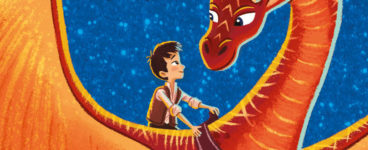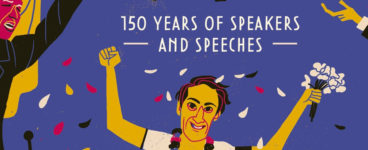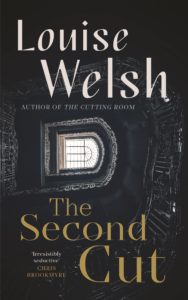‘It’s only January, but the bar for this year’s William McIlvanney prize is intimidatingly high already.’
We have been excited here at BooksfromScotland since we heard Louise Welsh was working on a sequel to her fabulous debut The Cutting Room. David Robinson finds that the follow-up, The Second Cut, has been well worth the wait.
The Second Cut
By Louise Welsh
Published by Canongate
Twenty years is a long time to wait for a sequel, but so completely does Louise Welsh’s The Second Cut shred the clichés of crime fiction, and so convincingly and freshly does it swathe Glasgow in her beyond-noir aesthetic, that it is well worth the wait.
Clichés (or rather, their absence) first. In most crime novels, the beginning is clear enough: there’s been a murder, the police are on the case, a corpse has been discovered and everything will spiral out from that. In The Second Cut, we have to read the whole novel to find out whether or not there’s been a murder, but either way the police aren’t particularly inclined to investigate, and what causes the plot to mesh into gear isn’t a crime so much as an attempt to tidy up a crime scene. (Don’t worry, I should add: there will be blood – although whose, where, how and whodunnit you probably won’t guess.)
One of these days a creative writing postgraduate – at some university other than Glasgow, where she has a professorship in the subject – will write a thesis on the avoidance of clichés in Louise Welsh’s fiction. This goes much deeper than plot, right into the heart of her art. If you doubt that, try searching for a cardboard cutout among the characters in her new novel. Or look at Rilke, her tall, thin, promiscuous gay auctioneer protagonist, and tell me who else is like that in crime fiction.
In spite of his name, Rilke seems to fit right into Glasgow. He knows the city’s history, the forgotten and hidden versions as well as the official one. He knows his own mind too, and there’s a Sherlockian certainty about his aesthetic and sexual tastes. He is also a great noticer of detail, which he has to be in order to remain at the centre of his auction house’s trading web.
Rilke’s job matters. Even back in The Cutting Room, he had been working at Bowery Auctions for twenty-five of his forty-three years, so it’s clearly the only job he’s ever had, and now he’s well into his fifties, that’s still the case. He won’t bend the rules on taking on antiques without provenance, tolerate laziness among the porters or take pre-emptive bids before an auction. But dealing with someone who has helped the firm, either in the past or the present, he’ll be altogether more lenient. So lenient, in fact, that he won’t worry too much about breaking the law.
And that’s where Jojo comes in, a drunk crashing a gay wedding at the Glasgow Arts Club en route to an orgy. Jojo is an embarrassment at the best of times, but is a useful source of tip-offs about antiques, like the one he gives to Rilke about an imminent country house clearance in Galloway. He invites Rilke to the orgy (he says no), hands him a bottle of what turns out to be a date rape drug, and heads off. He is found dead in a doorway in a lane off Ingram Street the following morning.
Plotwise, everything follows from three things in that last paragraph: the body, the bottle and the Galloway country house sale. But while the plot is feasible, immersive and engaging, it’s not the reason The Second Cut goes so deep into the reader’s mind. We follow Rilke for more than that. If, for example, in 2023 he were to auction off a duelling pistol that had been used in a murder, and in 2024 a faked treasure map sought after by criminals, we wouldn’t be so interested. That’s Lovejoy’s territory (John Grant’s 24-volume series, televised in the Eighties and Nineties and starring Ian MacShane as an antique dealer and forger) not Welsh’s, and the serial crime novel’s annual adventure is just another of the cliches she is avoiding. A decade ago, in an interview (Dead Sharp, by Len Wanner, Two Ravens Press) she admitted she was vaguely attracted by the idea of bringing Rilke back every ten years (as Patricia Highsmith did in four of her five Ripley novels) and that she would enjoy writing about a changing Glasgow from his point of view. Even so, she still held back for a further decade.
Glasgow has altered enormously in those twenty years. That Glasgow Arts Club gathering, at which a panto dame in oyster satin and ostrich feathers shushes the crowd as the two grooms cut the cake, is a sign of the times. Gay men can legally marry, no longer fear the police the way they used to, and their lives have become more convenient and danger-free. Fancy sex with a stranger to fill in that dead half hour before a meeting? Grindr was invented for this very purpose, and Rilke – ‘a serial shagger’, according to Jojo – takes full advantage of it. Except now, age is starting to catch up with him: strangers he calls on are just as likely to look him up and down and say ‘No I don’t think so’ before shutting the door.
There is so much to enjoy in this novel – the assurance of its descriptions of post-Covid Glasgow, Rilke’s lonely panache, the nuances of sexual politics, the dry, high-quality bants – but what’s irresistible about The Second Cut is the way in which Welsh manages to get all of this up and running at the same time. There’s one scene I’m thinking of in particular. It’s not pivotal, not given any big authorial bravura build-up, just five characters in a van driving from one part of Glasgow to another. Yet when I finished reading it, I realised that I’d never read anything like it.
Rilke is at the wheel, and Les – a transvestite of similar vintage (‘he looked like Nureyev might have, if he had survived HIV and given in to the occasional fish supper’) – is in the passenger seat. Les has summoned Rilke and Jojo’s lodger, an art student (who, it turns out, is painting key scenes in the book) to pick him up at George Square, where a demo against a visiting Terf (Trans Exclusionary Radical Feminist) is in full swing. Because there’s a counter-demo, a full range of culture war banners are being waved. In the crowd, Les has met two pretty boys (they might be girls; he’s not sure) who want to score some dope off him. He calls them femboys, and Midwich Cuckoos, but one of them takes exception to this and points out that she does, actually, have a vagina. Later on, we’ll find out that they identify as gender-queer. ‘Good for you,’ says Les. ‘I identify as a tranny.’ ‘You should have a better opinion of yourself,’ one of them tells him.
Shorn of all the abstractions of gender politics, here are some of their nuances in the flesh. And not just nuances: Welsh takes us to the edge of the cultural Grand Canyon that is the debates over trans rights – skilfully sketching in her characters’ views on the issue without overbalancing the story. In these divisive times, that’s a feat in itself.
So those five non-heteros in the van (a rarer sight than is should be in crime fiction) leave the anti-Terf demo (even rarer) behind and head off up the Great Western Road, as classical music fan Les (another cliche bites the dust) switches over to Radio 3 to drown out his talk with Rilke about date rape drugs. Outside:
‘Deliveroo couriers were waiting outside fast food shops. A band was uploading their gear from a taxi outside the Pint and Hug. A young boy sat on a scrap of cardboard on the street, watching them …’
And there you have it. A Glasgow I know and a gay subculture Glasgow I don’t. And, between hardback covers, a plausible, atmospheric, and completely engaging guide to both. It’s only January, but the bar for this year’s William McIlvanney prize is intimidatingly high already.
The Second Cut by Louise Welsh is published by Canongate, priced £14.99.
ALSO IN THIS ISSUE

 Dragon Storm
Dragon Storm
‘That evening, tucked into his tiny bunk, he thought again about the face. The bony head, and the te …

 Talking History: A Q & A with Joan Haig and Joan Lennon
Talking History: A Q & A with Joan Haig and Joan Lennon
‘While we cast on and off, she played us famous orations, and sometimes music, on her vinyl record p …













